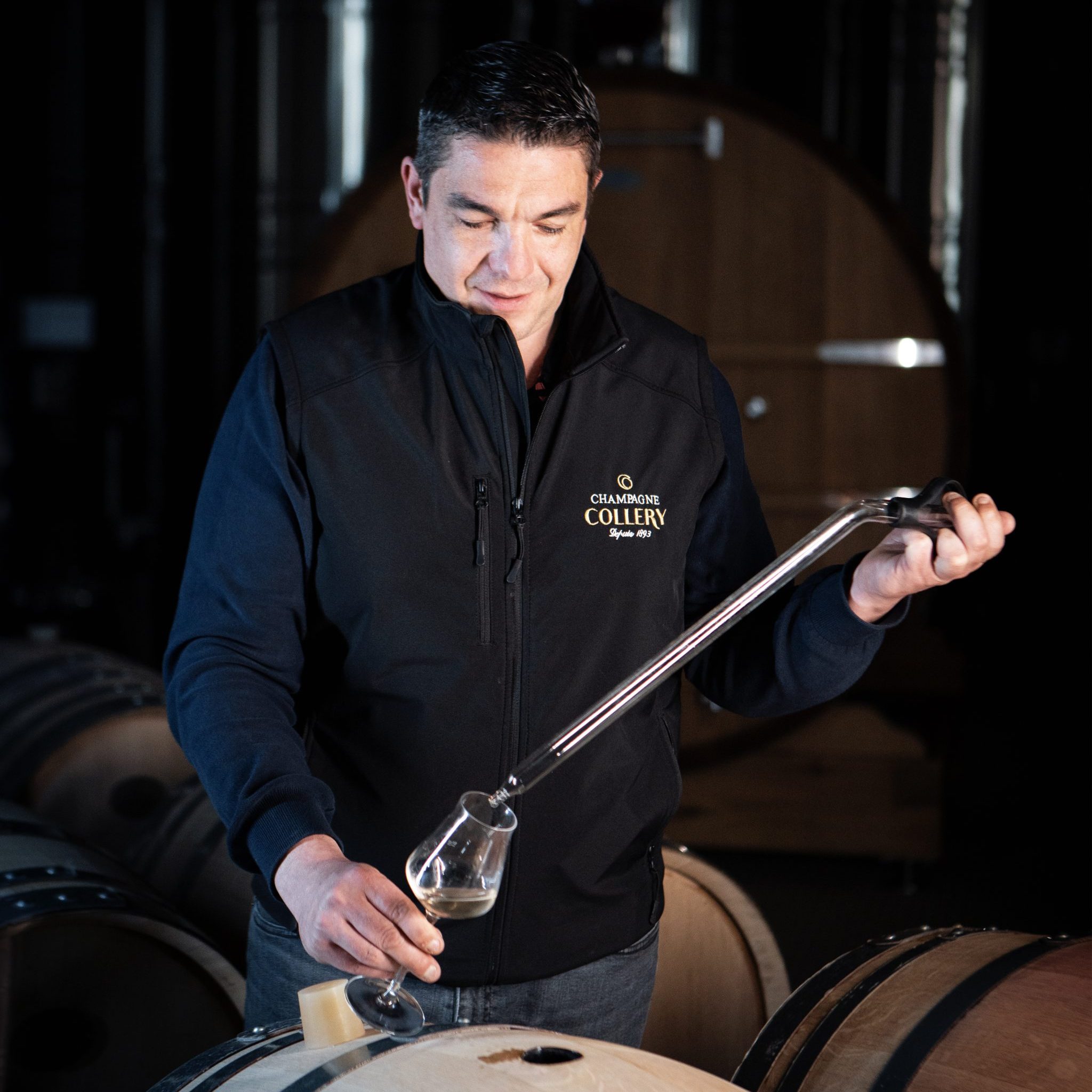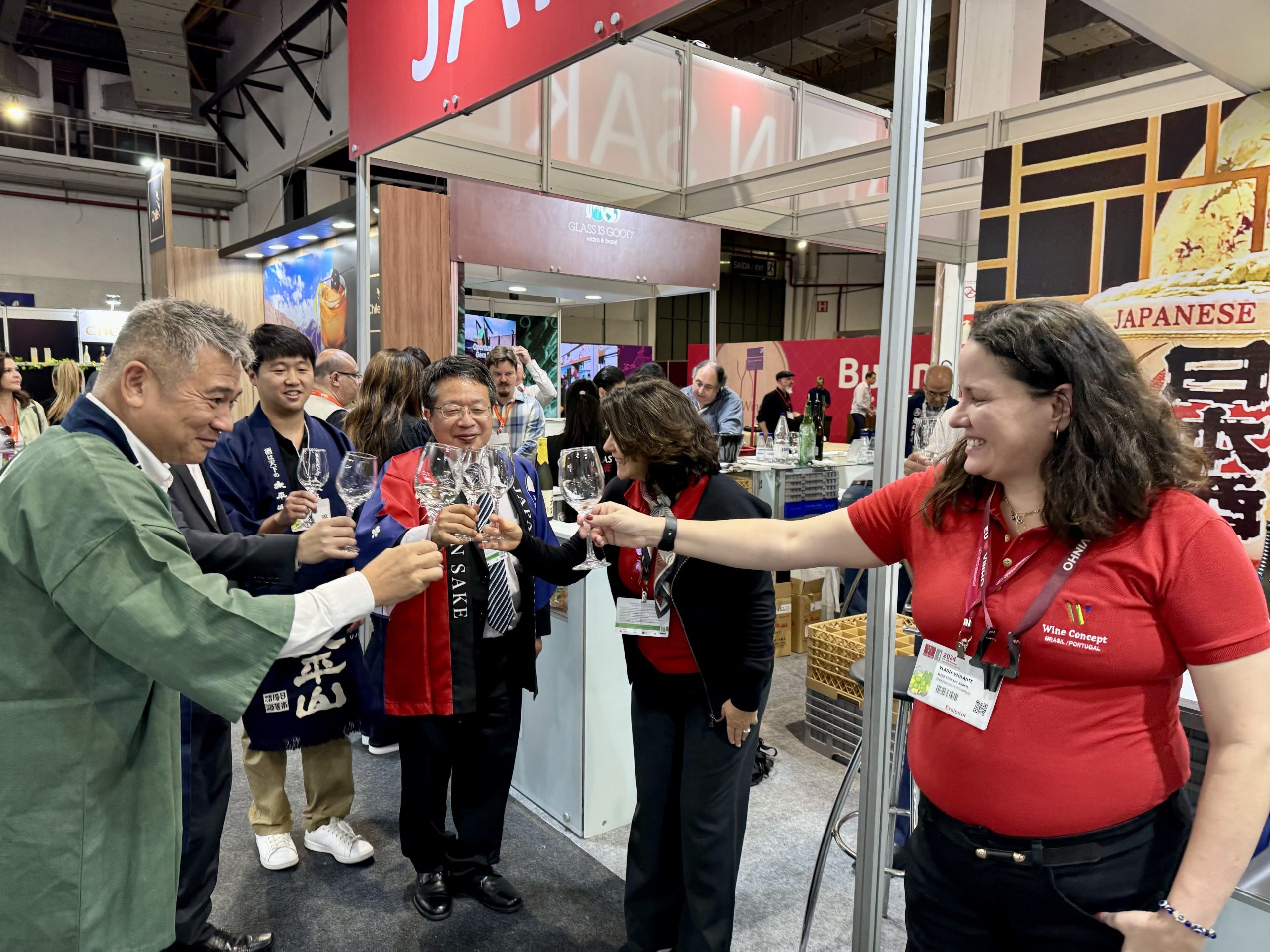Lindo clarifies ‘British Fizz’ comments, trade reacts
By Lucy ShawBob Lindo of Camel Valley in Cornwall has written an open letter to clarify his stance on the proposed ‘British Fizz’ PGI, which the wine trade has largely criticised.
Bob Lindo (right) and his son Sam of Camel Valley in Cornwall
In an email sent to members of the drinks trade yesterday, Lindo said:
“Dear All,
“Fifty years ago today the UKVA had its first meeting. It had two items on the agenda, both of which have been on every agenda since. They were so-called ‘British wine’ and duty.
“I have drafted a PGI application on behalf of the UK wine industry to protect the word ‘British’ from those with no connection whatsoever to the English/Welsh sparkling wine industries from picking up the term ‘British’ for their own use.
“The protected term applied for is ‘British’ with ‘British fizz’ shown as ‘an equivalent term’.
“It is less to do with a generic name for English sparkling wine and more to do with protection, although some might start to use the term in the US where it is gaining traction.
“There are three main aims and a caveat:
- It does not affect the current English and Welsh PDO/PGIs in any way.
- It enables those who find the category useful (e.g. export to the US) to use it.
- It will stop any advance of British wine trademarks and stop them making a so-called British Sparkling wine.
- It ensures that British sparkling wines can only be made from British grown grapes and the traditional method.
“I stress thus PGI will be owned and administered by the UKVA.”
The Drinks Business broke the original news story last week after Lindo and his son Sam revealed to db editor Patrick Schmitt MW that they were working towards registering the term ‘British Fizz’ as a protected geographical indication (PGI).
Lindo told db that he had written the necessary paperwork for obtaining the PGI and would be seeking to register the following three terms: ‘British Fizz’, ‘British Sparkling’ and ‘Wine from Great Britain’ in collaboration with the UKVA.
Partner Content
While some members of the trade have welcomed the idea of ‘British Fizz’ becoming the catch-all term for English and Welsh sparkling wine, others have reacted with disdain.
The Telegraph’s wine columnist Victoria Moore said: “It’s quite surprising as producers have spent years correcting people who refer to ‘British wine’, which legally means something quite different – wine made from reconstituted grape must which may have been imported, quite horrible.
“I’m not sure I like the term British fizz as it sounds a bit cheap. English Sparkling wine is the term currently used, and although it’s longer I think that sounds much classier.”
Wine writer Susy Atkins meanwhile, believes it’s too early to be looking for a name. “English sparkling wine is the brand and, as it’s still early days, I want to see more development of the style before we start to think about trendy names for it,” she said.
English wine expert Stephen Skelton thinks we can argue over terms until the cows come home, but none are likely to stick. “Nobody will agree on a universal name for English sparkling wine and the larger producers will definitely not use it. It’s fun pretending that it will catch on, but it won’t,” he said.
Miles Beale, chief executive of the Wine and Spirit Trade Association, dubbed Lindo’s ‘British Fizz’ PGI application a “side show”.
“Any application for a ‘British Fizz’ PGI is a side show right now – especially while it does not have the full support of the English sparkling wine industry and when we are just weeks away from triggering Article 50,” he said.
“The majority of producers have been happy to call it English sparkling wine, which already has some currency, but most also recognise that a catchy shorter name could help to boost exports.
“The WSTA would like to see English sparkling winemakers taking a decision to get behind an agreed generic name,” he added.





Why not call it Sparklibg English.
The term British Fizz does not in any way convey the correct message that we are trying to convey about our product. It is already used to describe a far inferior product and as Victoria Moore commented, we in the trade are constantly correcting the press and customers about the term and what it actually means. A British Fizz PGI would be a huge step backwards in terms of what we have achieved In producing a quality product and building a reputation which shows that.
Producers are so hell bent on competing with Champagne that there is a danger of losing focus on their product, its style, quality and awareness. English Sparkling Wine is excellent quality, we know that and the rest of the wine producing world is beginning to know that so producers need to concentrate on their own style rather then generic terms which represent everyone. And beside all of this the pricing structure still needs to be looked at before anything else.
While accepting that a generic name such as “British Fizz” may well prove valuable in protecting the UK manufacturers, a catchier name would be helpful in promoting the product to the British public – particularly the younger generation. How about “Jubilee” which, while having a suitably celebratory ring, would probably become popularised as “Jubbly” (as in “lovely jubbly”)
Bob rightly says that this is the industry reclaiming the word British for wine made from fresh grapes grown here and all the responses and quotes are about adopting British Fizz as a generic name. We are not trying to do this, nobody is suggesting that this is what we wish to use as a generic name!
I completely get what Bob and Sam are trying to do: take the term ‘British’ as it applies to wine, and give it the same status as ‘English’ or ‘Welsh’ (thus removing the right for products made from imported grape juice concentrate to carry the name ‘British’). This might seem unnecessary to some people, but with the industry looking to export, it will soon become apparent that in fact it does matter. In our Hakkasan Group restaurants around the world, I have many sommeliers (and guests) who are intrigued by the prospect of listing (and drinking) wines made in the UK. Not one of these potential buyers realises that ‘British wine’ is something quite different. They have no idea that only products labelled English or Welsh wine are the real thing. This situation should have been sorted out many years ago, and I’m surprised there is not more support for it now. It’s true that the name ‘British Fizz’ is not appealing, but it’s not meant to be. I think it’s just a red herring – a vehicle to facilitate the process of protecting the term ‘British’. Nobody will have to use it, and I doubt anybody will (maybe not even Camel Valley), but I think a lot of producers will have cause to be grateful to it in future, when they discover their export markets all want to buy British Wine.
‘British Fizz’ sounds common as muck…Like bucks Fizz…
British Sparkling sounds njce
How about “Britspark” or “Brespark”? It needs to be catchy for the marketing campaigns and for the younger generation to embrace it. We have some bars with Proscesco booths which are proving popular. We need to be supporting our wine industry as we move closer to Brexit and the childish behaviour of our fellow Europeans.